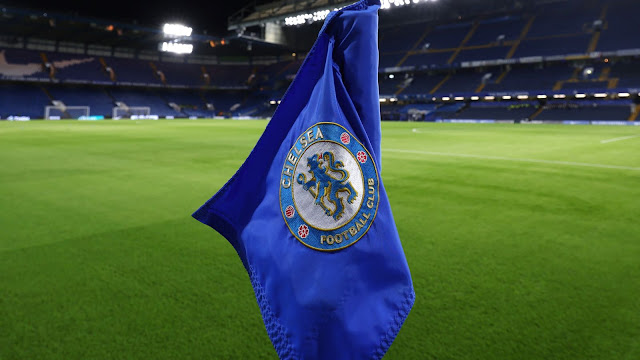In a significant development for English football, Chelsea Football Club, one of the Premier League’s most prominent and successful clubs, has been hit with an unprecedented 74 charges by the Football Association (FA), the governing body of football in England. The charges relate to alleged breaches of FA regulations concerning the club’s dealings with football agents and intermediaries, a critical area of football governance that has come under increasing scrutiny in recent years. This news has sent shockwaves through the footballing world, raising questions about Chelsea’s operational practices, the broader regulation of agent activities in football, and the potential consequences for one of England’s most storied clubs.
This article delves into the details of the charges, the context surrounding them, the FA’s regulations, the role of agents and intermediaries in modern football, and the potential ramifications for Chelsea Football Club. It also explores the historical backdrop of Chelsea’s rise to prominence, the complexities of football governance, and the broader implications for the Premier League and the global football landscape.
Background: Chelsea’s Rise and Recent Challenges
Chelsea Football Club, based in West London, has long been a powerhouse in English and European football. Founded in 1905, the club has a rich history, but its modern era of success began with the arrival of Russian billionaire Roman Abramovich in 2003. Under his ownership, Chelsea transformed into a global footballing juggernaut, winning five Premier League titles, two UEFA Champions League trophies, two Europa League titles, and numerous domestic cups. The club’s financial muscle, strategic recruitment, and managerial excellence made it a dominant force in the sport.
However, the Abramovich era was not without controversy. The club faced scrutiny over its financial practices, transfer dealings, and compliance with football regulations. In 2022, Abramovich was forced to sell the club due to geopolitical developments, and a consortium led by American businessman Todd Boehly and Clearlake Capital took over. The new ownership group promised to continue Chelsea’s tradition of success while implementing a data-driven, youth-focused recruitment strategy. However, their tenure has been marked by significant upheaval, including heavy spending in the transfer market, managerial changes, and now, this substantial regulatory challenge from the FA.
The 74 charges leveled against Chelsea by the FA represent one of the most significant regulatory actions against a Premier League club in recent memory. The allegations focus on breaches of rules governing the club’s interactions with football agents and intermediaries, a complex and often opaque area of football operations. To understand the gravity of these charges, it’s essential to explore the role of agents and intermediaries in football, the FA’s regulatory framework, and the specific nature of the allegations.
The Role of Agents and Intermediaries in Football
Football agents and intermediaries play a pivotal role in the modern game. They act as representatives for players, coaches, and sometimes clubs, facilitating transfers, contract negotiations, and commercial deals. Agents are typically licensed professionals who operate under strict regulations set by football governing bodies like the FA, FIFA, and UEFA. Intermediaries, a term often used interchangeably with agents, may include unlicensed individuals or entities who assist in transfer dealings, often working on behalf of clubs or players.
The rise of agents and intermediaries in football has been driven by the sport’s increasing commercialization. The global transfer market, valued at billions of dollars annually, relies heavily on these individuals to broker deals between clubs, players, and other stakeholders. Agents negotiate salaries, bonuses, image rights, and transfer fees, often earning substantial commissions for their services. While many agents operate ethically and within the boundaries of regulations, the industry has faced criticism for its lack of transparency, potential conflicts of interest, and instances of excessive profiteering.
In England, the FA regulates the activities of agents and intermediaries under its FA Rules on Working with Intermediaries, introduced in 2015 to replace the previous FIFA agent licensing system. These rules aim to ensure transparency, accountability, and fairness in dealings involving agents and intermediaries. Key provisions include:
Registration Requirements: All intermediaries must register with the FA and comply with its code of conduct.
Disclosure of Payments: Clubs and players must disclose all payments made to intermediaries, including commissions and fees.
Prohibited Practices: The rules prohibit certain practices, such as dual representation (where an intermediary represents both a player and a club in the same deal) without proper consent, and payments to intermediaries for players under 18.
Due Diligence: Clubs are required to conduct thorough due diligence on intermediaries to ensure compliance with regulations.
Sanctions for Non-Compliance: Breaches of these rules can result in fines, transfer bans, points deductions, or other penalties for clubs and individuals.
The FA’s regulations are designed to prevent exploitation, ensure fair competition, and protect the integrity of the game. However, enforcing these rules in a globalized, high-stakes industry is a complex task, and clubs like Chelsea, which operate at the forefront of the transfer market, are under constant scrutiny.
The Allegations Against Chelsea
The FA’s announcement that Chelsea faces 74 charges related to breaches of intermediary regulations is a significant escalation in football governance. While the FA has not released detailed information about the specific nature of each charge—citing the ongoing nature of the investigation—several key points have emerged:
Volume of Charges: The sheer number of charges—74—is unprecedented and suggests a systemic issue in Chelsea’s dealings with agents and intermediaries over an extended period. The charges are believed to span multiple transfer windows, potentially covering several years of activity.
Nature of Alleged Breaches: The allegations likely involve violations of the FA’s rules on intermediary payments, transparency, or due diligence. Possible breaches could include:
Failure to disclose payments to intermediaries.
Unauthorized or unregistered intermediaries acting on behalf of the club.
Payments related to transfers of underage players, which are heavily restricted.
Breaches of dual representation rules.
Inadequate due diligence on intermediaries involved in deals.
Timeframe: While the exact timeframe of the alleged breaches is unclear, reports suggest they may relate to activities under both the Abramovich and Boehly ownership periods. This raises questions about whether the issues are a legacy of past practices or a continuation under the new regime.
Scope of Investigation: The FA’s investigation is likely to involve a detailed review of Chelsea’s transfer records, contracts, and financial transactions. The club’s extensive activity in the transfer market—spending over £1 billion since Boehly’s takeover—makes this a complex and far-reaching probe.
Potential Penalties: If found guilty, Chelsea could face severe consequences, including fines, transfer bans, points deductions, or reputational damage. The severity of the penalties will depend on the nature and extent of the breaches, as well as any mitigating factors presented by the club.
The FA has stated that Chelsea has been formally notified of the charges and will have the opportunity to respond. The club is expected to cooperate fully with the investigation, but the process could take months, if not years, to resolve, given the complexity and volume of the allegations.
Chelsea’s Response and Next Steps
Chelsea Football Club has yet to issue a detailed public statement regarding the charges, but sources close to the club indicate that they are taking the matter seriously. The club is likely to engage legal and compliance experts to review the allegations, prepare a defense, and ensure full cooperation with the FA. Chelsea’s leadership, including Boehly and co-sporting directors Laurence Stewart and Paul Winstanley, will be under pressure to demonstrate that the club’s operations align with regulatory standards.
In a brief statement, Chelsea acknowledged the FA’s charges and committed to working constructively with the governing body. The club emphasized its commitment to compliance and transparency, stating, “Chelsea Football Club is fully committed to adhering to all FA regulations and will cooperate fully with the ongoing investigation. We will address the allegations appropriately and provide further comment at the appropriate time.”
The club’s response will likely involve a detailed internal audit of its transfer dealings, agent interactions, and compliance processes. Chelsea may also seek to identify any systemic issues that contributed to the alleged breaches and implement reforms to prevent future violations. The outcome of the investigation will depend on the strength of the FA’s evidence, Chelsea’s defense, and the impartiality of the regulatory process.
The Broader Context: Agents, Money, and Football Governance
The charges against Chelsea highlight broader issues in football governance, particularly the regulation of agents and intermediaries. The football industry has undergone a dramatic transformation in recent decades, with skyrocketing transfer fees, player wages, and commercial revenues. Agents and intermediaries have become central to this ecosystem, wielding significant influence over player movements and club strategies.
However, the agent industry has long been a source of controversy. High-profile cases, such as the 2019 FIFA ban on Chelsea for breaching rules on signing underage players, have exposed vulnerabilities in the system. Similarly, investigations into other clubs, such as Manchester City’s ongoing case regarding alleged breaches of Premier League financial rules, underscore the challenges of enforcing regulations in a globalized sport.
The FA’s rules on intermediaries were introduced to address some of these issues, but critics argue that they are insufficiently robust. The lack of a global licensing system—after FIFA scrapped its agent licensing program in 2015—has led to inconsistencies in regulation across countries. In England, the FA has sought to impose stricter oversight, but the sheer volume of transactions and the complexity of international transfers make enforcement difficult.
Chelsea’s case also raises questions about the role of club ownership in ensuring compliance. The Boehly-led consortium has been praised for its ambitious vision but criticized for its aggressive spending and rapid turnover of players and staff. The charges may fuel speculation that the club’s transfer strategy—characterized by high-profile signings and significant agent involvement—has exposed it to regulatory risks.
Potential Consequences for Chelsea
The 74 charges represent a significant challenge for Chelsea, both on and off the pitch. The potential consequences include:
Financial Penalties: Fines are a common sanction for breaches of intermediary regulations. Given the number of charges, any fine could be substantial, potentially straining Chelsea’s finances, particularly in light of their recent heavy spending.
Transfer Bans: One of the most severe penalties could be a transfer ban, preventing Chelsea from signing new players for one or more transfer windows. The club faced a similar ban in 2019, which disrupted their recruitment plans but also forced them to rely on academy talents like Mason Mount and Reece James.
Points Deductions: In extreme cases, the FA or Premier League could impose points deductions, which would directly impact Chelsea’s performance in domestic competitions. This would be a devastating blow to a club aiming to compete for titles.
Reputational Damage: The charges could harm Chelsea’s reputation, both among fans and in the broader footballing community. The club has worked to position itself as a forward-thinking, ambitious organization, and a high-profile regulatory scandal could undermine this narrative.
Internal Reforms: Regardless of the outcome, Chelsea is likely to overhaul its compliance and transfer processes to prevent future breaches. This could involve changes to personnel, policies, and oversight mechanisms.
The impact of the charges will depend on the FA’s findings and Chelsea’s ability to mount a robust defense. The club’s leadership will need to balance addressing the allegations with maintaining focus on their on-pitch objectives, including competing in the Premier League, domestic cups, and European competitions.
Historical Precedents and Comparisons
Chelsea is not the first club to face scrutiny over its transfer dealings. In recent years, several high-profile cases have highlighted the challenges of regulating the transfer market:
Chelsea’s 2019 Transfer Ban: In 2019, FIFA banned Chelsea from signing players for two transfer windows due to breaches of rules on signing underage players. The ban was later reduced to one window, allowing Chelsea to resume recruitment in January 2020. The case demonstrated the club’s vulnerability to regulatory action and the importance of robust compliance systems.
Manchester City’s Financial Fair Play Case: Manchester City has faced an ongoing investigation by the Premier League over alleged breaches of financial rules, with charges filed in 2023. The case, which involves over 100 alleged breaches, underscores the complexity of enforcing financial regulations in football.
Juventus’ Agent-Related Issues: In Italy, Juventus faced sanctions in 2023 for irregularities in their financial reporting and transfer dealings, including agent payments. The club was docked points and excluded from European competitions, highlighting the severe consequences of regulatory breaches.
These cases illustrate the growing emphasis on transparency and accountability in football. Governing bodies like the FA, Premier League, and FIFA are under pressure to crack down on non-compliance, particularly as the sport’s financial stakes continue to rise.
The Bigger Picture: Football’s Regulatory Challenges
The charges against Chelsea are part of a broader trend of increased regulatory scrutiny in football. The sport’s global growth has brought unprecedented wealth but also new challenges, including money laundering, tax evasion, and unethical agent practices. Governing bodies are grappling with how to regulate a multi-billion-dollar industry while maintaining fairness and integrity.
Key challenges include:
Globalization of the Transfer Market: Players, agents, and clubs operate across borders, making it difficult to enforce consistent regulations. The FA’s rules apply only in England, but Chelsea’s dealings involve international players and intermediaries, complicating oversight.
Financial Transparency: The vast sums of money flowing through football—through transfer fees, wages, and agent commissions—create opportunities for financial misconduct. Ensuring transparency in these transactions is a priority for regulators.
Youth Player Protections: The FA and FIFA have strict rules on signing underage players to protect young athletes from exploitation. However, enforcing these rules in a competitive transfer market is challenging, as clubs seek to secure the best young talent.
Agent Regulation: The lack of a global licensing system for agents has led to calls for reform. FIFA is reportedly working on new regulations to restore centralized oversight, but progress has been slow.
Chelsea’s case could serve as a catalyst for broader reforms in football governance. The FA may use the investigation to send a strong message about the importance of compliance, while clubs across the Premier League may reassess their own practices to avoid similar scrutiny.
Fan and Media Reactions
The news of Chelsea’s 74 charges has sparked intense debate among fans, pundits, and the media. On social media platforms like X, reactions have ranged from concern to outrage, with some Chelsea supporters defending the club and others expressing frustration at the prospect of further sanctions.
Chelsea Fans: Many Chelsea supporters have expressed disappointment but remain hopeful that the club can navigate the investigation without severe consequences. Some have pointed to the club’s history of overcoming challenges, while others have criticized the Boehly regime’s handling of transfers.
Rival Fans: Supporters of rival clubs, such as Manchester United, Arsenal, and Tottenham, have seized the opportunity to mock Chelsea, with some calling for harsh penalties like points deductions or relegation. However, others have acknowledged that regulatory issues are widespread in football and not unique to Chelsea.
Media Analysis: Pundits and journalists have described the charges as a significant moment for English football. Some have speculated that the FA is making an example of Chelsea to deter other clubs from bending the rules. Others have questioned whether the FA’s regulations are fit for purpose in the modern game.
The controversy has also reignited discussions about the role of money in football. Chelsea’s lavish spending under Boehly—over £1 billion in transfer fees since 2022—has drawn criticism from some quarters, with commentators arguing that such spending invites regulatory scrutiny.
What’s Next for Chelsea and the FA?
As the investigation unfolds, several key developments are expected:
Chelsea’s Defense: The club will likely submit a detailed response to the FA, addressing each of the 74 charges. This could involve providing evidence of compliance, disputing the allegations, or negotiating a settlement to reduce penalties.
FA’s Investigation Process: The FA will conduct a thorough review of Chelsea’s transfer records, agent contracts, and financial transactions. This process could involve interviews with club officials, agents, and other stakeholders.
Potential Hearings: If the case proceeds to a formal hearing, an independent regulatory commission will review the evidence and determine Chelsea’s guilt or innocence. The commission’s decision could be appealed by either party.
Timeline: Given the number of charges and the complexity of the case, the investigation could take several months or even years to resolve. Chelsea may face uncertainty during this period, particularly if sanctions are imposed mid-season.
Broader Reforms: The case may prompt the FA to review its intermediary regulations and consider stricter measures to prevent future breaches. It could also influence FIFA’s efforts to reform global agent regulations.
For Chelsea, the immediate priority will be to maintain focus on their on-pitch performance while addressing the off-field challenges. The club is currently competing in the Premier League and UEFA Conference League, with manager Enzo Maresca tasked with building a cohesive team amid the uncertainty.
Conclusion
The 74 charges leveled against Chelsea Football Club by the FA represent a defining moment for the club and English football. The allegations of breaches in intermediary regulations highlight the complexities of governing a multi-billion-dollar sport, where financial power, global markets, and regulatory oversight intersect. For Chelsea, the charges pose a significant risk to their reputation, finances, and competitive ambitions, but they also present an opportunity to strengthen their compliance systems and demonstrate resilience.
As the investigation unfolds, the footballing world will be watching closely. The outcome could have far-reaching implicatio







